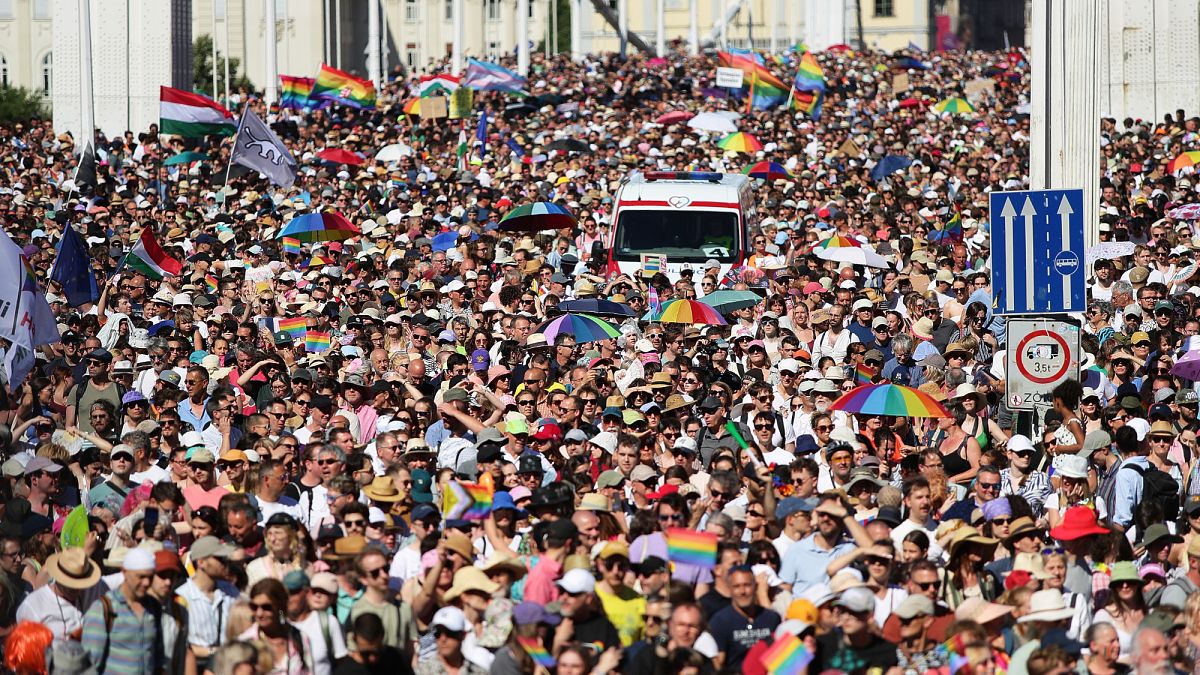

In recent weeks, a series of significant events across the globe have highlighted the growing momentum of movements advocating for LGBTQ+ rights and civil justice. These developments have not only showcased the resilience of communities demanding equity and freedom but also underscored the complex interplay between state policies and the aspirations of diverse groups seeking change.
In Hungary, more than 100,000 people gathered for the annual Budapest Pride event, defying a governmental ban imposed by Prime Minister Viktor Orbán’s administration. Despite the restrictions, participants marched through the streets of Budapest, advocating for pro-LGBTQ+ rights and showcasing the enduring spirit of the movement. This demonstration represented a collective stand against policies perceived as regressive and discriminatory. The massive turnout was utilized by opposing political parties to advance their respective agendas, illustrating how movements can serve as platforms for broader political discourse. The event highlighted the power of peaceful protest in challenging restrictive policies and advocating for acceptance and inclusivity.
Similarly, in Serbia, citizen activism has manifested in robust protests following a tragic event that unfolded in November. A renovated rail station canopy collapsed in Novi Sad, resulting in the loss of 16 lives. This incident sparked a wave of anti-government protests, largely driven by the public’s outcry against what they perceive as corruption-fueled negligence in state-led infrastructure projects. Thousands have taken to the streets, establishing blockades to call for accountability and transparency. While these protests were triggered by a specific event, they have evolved into a broader movement demanding systemic change and justice. The demonstrations illustrate the essential role that civic engagement plays in holding authorities accountable and pushing for reforms that prioritize public welfare and safety.
Meanwhile, a significant legal development has unfolded in the Cayman Islands, a British overseas territory. A court in London upheld a law legalizing same-sex civil partnerships, a decision welcomed by LGBTQ+ advocates who see it as a potential catalyst for similar progress in other British territories. The Privy Council, serving as the final court of appeal, ruled against an appeal challenging the governor’s authority to enact the legislation following its rejection by local lawmakers. This ruling represents a victory for LGBTQ+ rights in the region and offers hope for continued advancements towards equality in similar jurisdictions. Advocates argue that such legal recognitions are crucial milestones in the broader fight for LGBTQ+ rights, setting precedents that could inspire legislative changes in other regions.
The intersection of human rights advocacy and political action continues to propel movements across borders and cultures. Whether through vibrant street parades, poignant demonstrations calling for justice, or landmark court decisions, the quest for equality and justice remains a dynamic and evolving force in today’s world. As these narratives unfold, they provide poignant reminders of the power of collective action and the importance of remaining steadfast in the pursuit of a just world for all. Each event, in its unique context, offers valuable lessons on the resilience and courage required to drive societal change.
Source: {link}
